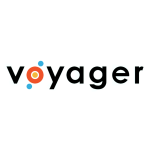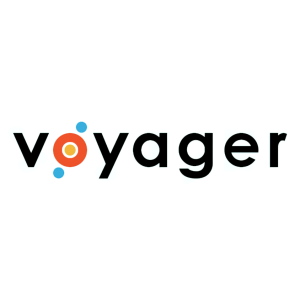Welcome to our dedicated page for Voyager Therapeutics news (Ticker: VYGR), a resource for investors and traders seeking the latest updates and insights on Voyager Therapeutics stock.
Voyager Therapeutics Inc (VYGR) is a leader in developing gene therapies for central nervous system disorders through its proprietary TRACER™ platform. This page provides investors and researchers with essential updates on clinical developments, strategic partnerships, and scientific breakthroughs in AAV-based treatments.
Access curated press releases and news articles covering key milestones in Voyager’s pipeline, including therapies for Parkinson’s disease, ALS, and Friedreich’s ataxia. Stay informed about advancements in blood-brain barrier penetration technology and preclinical validation studies across multiple species.
Our repository features updates on clinical trial progress, regulatory developments, and collaborative research initiatives. Discover analysis of vector optimization achievements and manufacturing scalability efforts critical to gene therapy commercialization.
Bookmark this page for consolidated access to verified information about Voyager’s neurogenetic innovations. Check regularly for objective reporting on therapeutic candidate progression and industry leadership in CNS-targeted gene delivery solutions.
Voyager Therapeutics (Nasdaq: VYGR) has presented preclinical data showing that its proprietary AAV vector, developed using TRACER™ technology, effectively targets HER2+ breast cancer brain metastases. The findings indicate that intravenous dosing of this vector leads to significant tumor reduction and improved survival rates in mouse models. The anti-HER2 antibody produced through this method achieves high concentrations in cerebrospinal fluid, suggesting potential for effective treatment against CNS tumors. Voyager plans to continue optimizing this innovative gene therapy approach.
Voyager Therapeutics (Nasdaq: VYGR) announced the presentation of preclinical data from its vectorized antibody program at the 26th Annual Society for Neuro-Oncology Meeting on Nov. 19, 2021. The presentation, titled AAV mediated brain delivery of an ADCC-enhanced antibody obviates xenograft growth in mouse models of HER2+ breast cancer brain metastasis, will be delivered by Dan R. Laks, Ph.D., at 4:15 p.m. ET. This represents a significant advancement in the development of AAV gene therapy technology, aiming to treat severe diseases through innovative approaches.
Voyager Therapeutics has partnered with Pfizer through a licensing agreement to access its TRACER™ capsids for gene therapies targeting neurological and cardiovascular diseases. The deal includes a $30M upfront payment and potential milestone payments of up to $600M. Preclinical results from Voyager's GBA1 gene therapy indicate significant CNS distribution and enzyme activity correction. For Q3 2021, Voyager reported a net loss of $25.1M, down from a net income of $85.6M in Q3 2020, with collaboration revenue decreasing from $117.8M to $1.5M.
Voyager Therapeutics (Nasdaq: VYGR) announced promising preclinical data on its GBA1 gene replacement therapy, showing sustained correction of GCase enzyme activity across multiple brain regions in mice after a single intravenous dose. Results from the virtual Congress of the European Society of Gene and Cell Therapy indicated a 300% to 660% increase in GCase levels, potentially enabling effective treatment for neurological diseases like Gaucher disease and Parkinson’s. The therapy was well-tolerated, showcasing the advantages of blood-brain barrier-penetrant AAV capsids over traditional delivery methods.
Voyager Therapeutics (Nasdaq: VYGR) has entered a partnership with Pfizer, receiving $30 million upfront. The collaboration allows Pfizer to access Voyager's advanced AAV capsids, enhancing drug delivery for gene therapies targeting neurological and cardiovascular diseases. The agreement includes potential exercise fees and milestone payments up to $600 million, along with royalties based on product sales. Voyager retains rights for other applications of its TRACER technology, expected to boost the development of gene therapies and address unmet medical needs.
Voyager Therapeutics (Nasdaq: VYGR) announced its participation in three upcoming virtual investor conferences on September 9, 14, and 15, 2021. These conferences will feature a fireside chat at the Wells Fargo Securities Healthcare Conference, a fireside chat at the Morgan Stanley Global Healthcare Conference, and a company presentation at the Baird Global Healthcare Conference, respectively. Investors can access these sessions via the Investors & Media section of Voyager's website, where replays will also be archived for at least 30 days.
Voyager Therapeutics (Nasdaq: VYGR) announced its participation in two upcoming virtual investor conferences. The first is the Wedbush PacGrow Healthcare Conference, featuring a panel discussion on August 11, 2021, at 8:35 AM ET. The second is the Canaccord Genuity Growth Conference, which includes a fireside chat on August 12, 2021, from 10:30 to 10:55 AM ET. Investors can access these sessions via the Investors & Media section of Voyager’s website. The company focuses on advancing AAV gene therapy to treat serious diseases using its TRACER™ screening platform.
Voyager Therapeutics (VYGR) announced significant updates in its pipeline, focusing on second-generation programs for Huntington’s disease, ALS, spinal muscular atrophy, and GBA1 mutation-related diseases, utilizing proprietary AAV capsids. The TRACER platform aims to discover targeted AAV capsids for various tissues. Financially, collaboration revenue dropped to $1.4 million in Q2 2021 from $28.7 million in Q2 2020, while net loss increased to $30.1 million. The company maintains a cash position of $143 million, sufficient for operations into early 2023.
Voyager Therapeutics (NASDAQ: VYGR) announces a strategic shift towards enhancing its gene therapy pipeline, particularly focusing on VY-HTT01 for Huntington's disease. Michael Higgins steps in as interim CEO following Andre Turenne's resignation, while Glenn Pierce assumes the role of interim CSO. The company aims to maximize its TRACER gene therapy platform, which has shown promising transgene expression in non-human primates. Upcoming milestones include the initiation of a Phase 1/2 clinical trial for VY-HTT01 in Q4 2021, emphasizing the potential of its next-generation AAV capsids.
Voyager Therapeutics (NASDAQ: VYGR) presented new preclinical data on a vectorized anti-tau antibody at the 24th Annual Meeting of the American Society of Gene and Cell Therapy. The data indicates durable expression within the central nervous system, which may provide a novel single-dose strategy for treating tauopathies like Alzheimer's. Key findings include a 59% reduction in tau pathology after intravenous administration in rodent models and lasting expression for at least 28 days. A virtual investor event is planned for July 2021 to discuss further developments.


